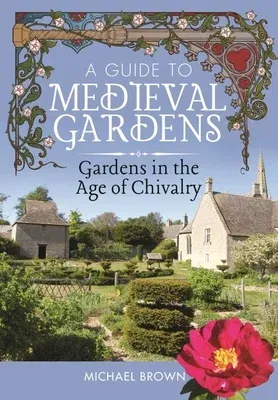Michael Brown
(Author)A Guide to Medieval Gardens: Gardens in the Age of ChivalryHardcover, 24 February 2022

Qty
1
Turbo
Ships in 2 - 3 days
In Stock
Free Delivery
Cash on Delivery
15 Days
Free Returns
Secure Checkout

Print Length
176 pages
Language
English
Publisher
White Owl
Date Published
24 Feb 2022
ISBN-10
1526794543
ISBN-13
9781526794543
Description
Product Details
Author:
Book Format:
Hardcover
Country of Origin:
GB
Date Published:
24 February 2022
Dimensions:
24.79 x
17.2 x
2.21 cm
Genre:
Medieval (500-1453) Studies
ISBN-10:
1526794543
ISBN-13:
9781526794543
Language:
English
Pages:
176
Publisher:
Weight:
771.11 gm